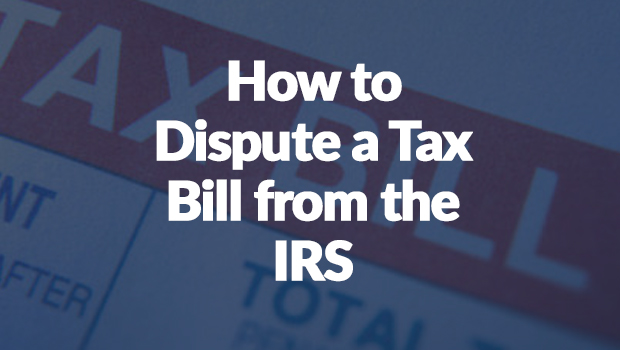If the IRS believes you owe them money for unpaid taxes, you might grudgingly acknowledge the IRS is correct. But in situations where you disagree, you have certain legal rights to contest or dispute the IRS.
Your Right to Dispute a Tax Bill from the IRS
Your exact rights and how you exercise them can depend on the amount of the disagreement, the reason for the disagreement and how the disagreement arose. For the most part, your right to dispute an IRS determination that you owe them money will involve filing an appeal with the IRS Independent Office of Appeals and/or suing in court.
Filing an Appeal with the IRS
Generally speaking, you can appeal an IRS decision if you believe any of the following has occurred:
- The IRS misapplied or misinterpreted the law.
- The IRS incorrectly denied your Offer in Compromise request.
- The IRS acted improperly when trying to collect a tax debt from you.
- The IRS made a decision against you based on faulty information.
Before you file an appeal, you need to make sure it’s the right time in the tax collection process to do so. The IRS will often tell you when this time comes because the IRS will send you a letter about the tax dispute and it will mention your right to file an appeal if you disagree with the IRS.
The appeals process you follow depends on how much money is in dispute. For example, if the amount at issue is $25,000 or less (as a result of an audit), then you can file a Small Case Request to appeal the IRS decision. There are also slightly different appeal procedures depending on what you’re appealing, such as a tax lien or levy versus a Trust Fund Recovery Penalty.
One of the good things about using the IRS appeals process to contest a tax bill is that you’re not required to have an attorney represent you during the appeal. If you don’t want to represent yourself, you can hire a tax professional such as a certified public accountant, attorney or an enrolled agent that’s authorized to practice before the IRS.
The complexity of your case, as well as the amount of time and money you have available to fight the IRS, will help determine if you should hire a tax professional to assist you. But it’s safe to assume that you’ll have a better chance of success by hiring a tax professional. If you decide to sue the IRS in court instead of filing an appeal, then you must have an attorney to represent you.
Suing the IRS
Deciding to sue the IRS means bringing suit in either the U.S. Tax Court (Tax Court), U.S. District Court (District Court) or the U.S. Court of Federal Claims. In the majority of cases, you’ll be suing in either the Tax Court or the District Court.
So which court should you sue in? The first consideration is whether the Tax Court has jurisdiction to handle your case. You’ll file suit in Tax Court only if you receive a statutory notice from the IRS. The two most common are the Notice of Deficiency and the Notice of Determination.
Assuming the Tax Court and District Court both have jurisdiction to handle your case, which one you choose will depend on your unique tax situation and which court gives you the best advantage against the IRS. However, a tax attorney can give you the benefits and drawbacks of both courts so you can make an informed decision.
One of the biggest differences between the two courts is that if you sue in Tax Court, you don’t have to pay your tax bill before suing. If you sue in District Court or the U.S. Court of Federal Claims, you’ll pay the IRS what they say you owe them, then you’ll file suit to get a refund.
As mentioned earlier, you hire an attorney if you decide to sue the IRS in court. Even if there was no such requirement, hiring one is a good idea because they will not only help you navigate the complicated litigation process, but they will give you advice on where to sue and what legal arguments to make to have the best chance for success. Under certain conditions, CPAs and Enrolled Agents can represent taxpayers in the US Tax Court.
Conclusion
Depending on which avenue you decide to take when disputing an IRS tax bill, you don’t need to hire a tax attorney. But for many legal disagreements involving the IRS, it’s usually a good idea to hire a tax attorney or other appropriate tax professional.
Kienitz Tax Law is here to help you with your tax issues. Schedule your FREE consultation today!

